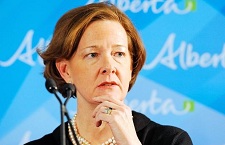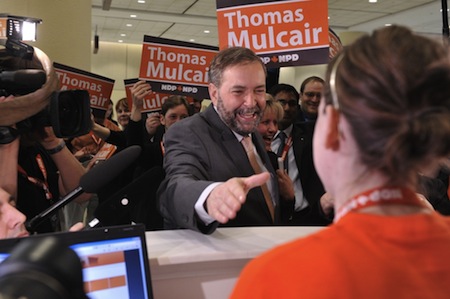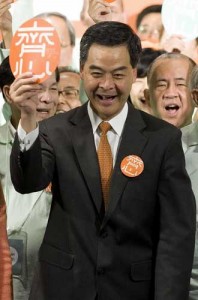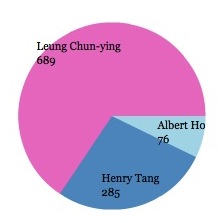


In the wake of Vladimir Putin’s outsized 64% win in the first round of the Russian presidential election earlier this month, the initial protests against likely fraud — and fraud in December’s legislative elections — have fizzled as Putin and the Russian government quickly made clear they had little appetite for too much protest, deploying a near-military police presence throughout Moscow. 
In the subsequent weeks, however, third-place finisher billionaire Mikhail Prokhorov (pictured above, middle) has made good on his promise to keep up the pressure for a more democratic Russia — and appears to be teaming with former Russian finance minister Alexei Kudrin (pictured above, at top) in that effort, leading some amount of credibility to his efforts.
Prokhorov’s campaign was greeted with a healthy amount of skepticism; Prokhorov had previously been on fairly good terms with the Kremlin and his was one of very few candidacies permitted to proceed (unlike longtime liberal reformer Grigory Yavlinksy, who was alleged not to have gathered up enough signatures in the runup to the presidential vote). Since the election, Prokhorov has also ruled out serving in any future Putin cabinet as well.
Kudrin resigned as finance minister last September over a fight with President Dmitry Medvedev over budget issues, having previously served in the role since 2000. Kudrin presided over the economic boom that lifted Russia out of the dire economic conditions of the 1990s. Indeed, notwithstanding the turbulence of the financial crisis in 2008 and onwards, Russia today remains in much better economic condition than in the 1990s in no small part due to Kudrin’s stewardship. In his 11 years as finance minister, Kudrin prioritized the repayment of Russian’s significant foreign debt accumulated in the 1990s and steered wealth from the oil boom of the mid-2000s into a stabilization fund for Russia. At a time when Russia became politically more ostracized from the United States and Europe, and as the Putin-Medvedev regime became disturbingly less tolerant of dissent and less respectful of democratic norms and freedoms, Kudrin’s prudence as finance minister won plaudits from global investors.
Since his resignation, Kudrin has expressed enthusiasm in working with Yavlinsky (picture above, at bottom) to consolidate the liberal movement in Russia, supported the protest movement in the wake of December parliamentary elections and established a fund to promote democratic reforms in Russia.
Prokhorov, who owes his fortune to the sale of his share in Russia’s largest nickel mining operation and who owns the New Jersey Nets, could bring a lot of financial firepower to the Kudrin effort and a potentially young, energetic and popular face to the liberal movement — he finished second to Putin in Moscow and St. Petersburg.
The troika of Kudrin, Yavlinsky and Prokhorov would be perhaps the strongest pro-democracy front in Russia’s post-Soviet history and would present a center-right opposition against both Putin’s siloviki state of former military and security officers and the dwindling leftist movement led by the Communist Party (its perennial presidential candidate, Gennady Zyuganov, finished second and attracted almost 20% of voters). Continue reading Next steps for the Russian opposition? →

![]()










